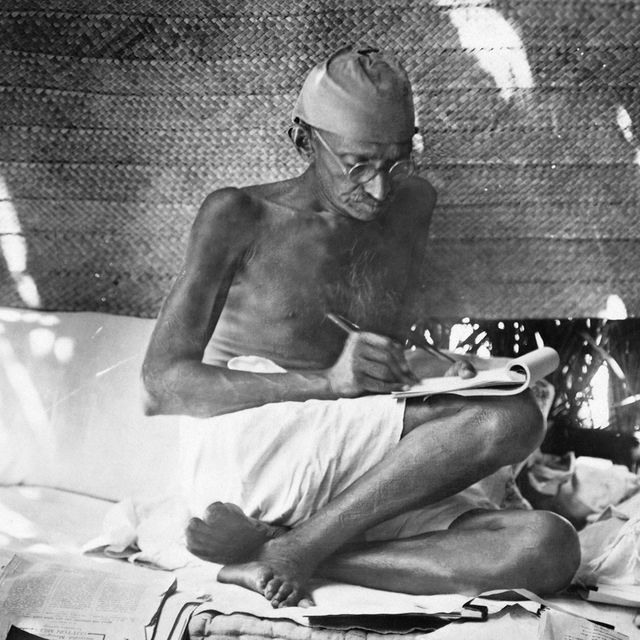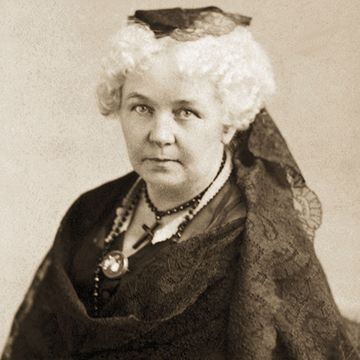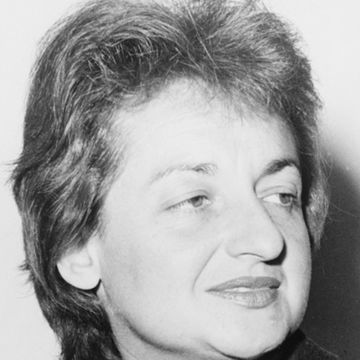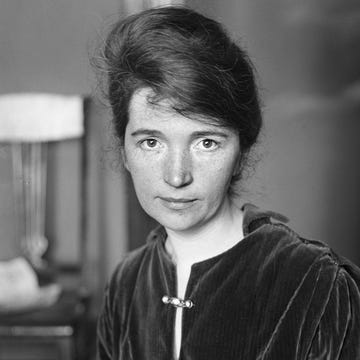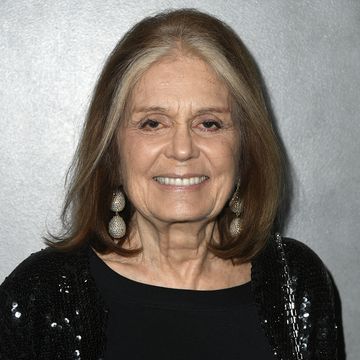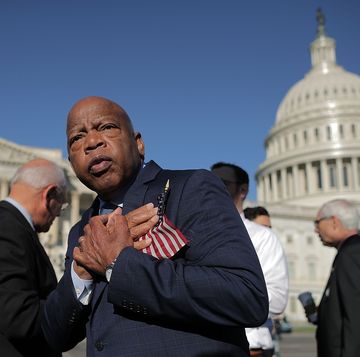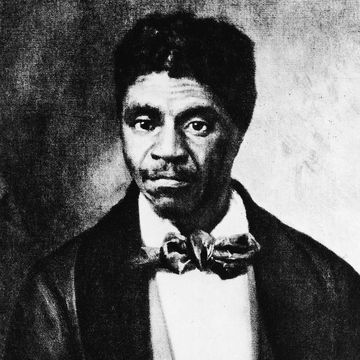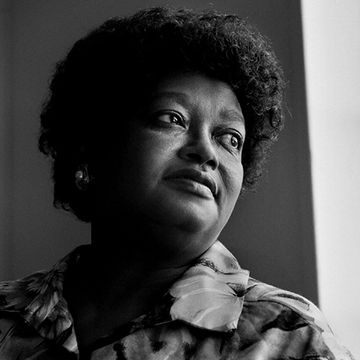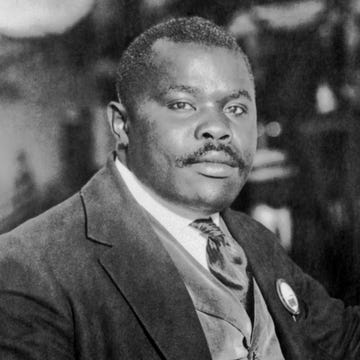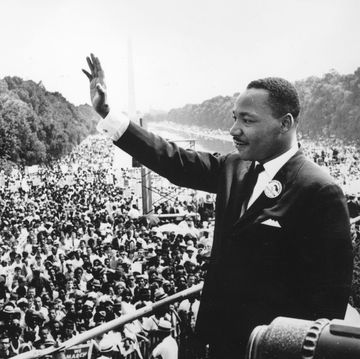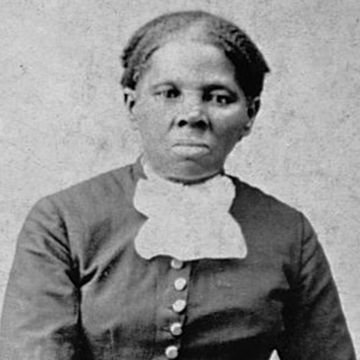On January 21, 2017, the Women's March on Washington became the largest human rights protest in U.S. history, with an estimated 3.3 million demonstrators (and counting) in over 500 cities — with not a single arrest or act of violence recorded. The march was rooted in the nonviolent civil disobedience philosophies of Martin Luther King Jr. and Mahatma Gandhi.
Gandhi forged India's independence from British rule in 1947 by staging massive peaceful demonstrations against poverty and the fight for women's rights and religious tolerance. Despite his death, Gandhi has become immortalized in our psyche as a hero of human rights and synonymous with the act of peaceful protest. He continues to inspire nonviolent human rights movements all around the world and has influenced the leadership of contemporary heavyweights like Nelson Mandela, Cesar Chavez, the Dalai Lama, and Aung San Suu Kyi.
In honor of Gandhi's legacy, we look at some surprising facts about his personal life, career, and politics.
-Gandhi was not the best student. Although he was known for being highly ethical with good English skills, he was considered a mediocre student in math and poor in Geography. He also had bad handwriting, which he was embarrassed about.
-Gandhi was a teenage newlywed. He was only 13 years old when he married his 14-year-old bride Kasturba in 1882. The young couple weren't too fond of each other but later found common ground. The death of their first child made him a strong opponent of child marriage.
-Gandhi spoke English like an Irishman. (One of his first English teachers was from Ireland.)
-Gandhi's civil disobedience was inspired by American Transcendentalist Henry David Thoreau, whose famous essay "Civil Disobedience," he read while he was in prison.
-Gandhi's activism started in South Africa. Having a hard time finding work as a lawyer in India, Gandhi traveled to South Africa in 1893, where he was given legal work through an Indian firm. It was there that he and his fellow Indians encountered constant discrimination by the Dutch and the British, which in turn, inspired him to fight for their rights. During his time in South Africa, where he was imprisoned many times, he developed his concept of peaceful resistance and "satyagraha" (firmness in truth).
-In 1930 Gandhi became the first and only Indian (so far) who has been distinguished with the "Time Person of the Year" title.
-Gandhi never won a Nobel Peace Prize, despite being nominated five times. In 2006 the committee publicly admitted its regret at having never honored him with the award.
-Gandhi didn't like his photograph taken, yet he became the most photographed person of his era.
-Gandhi and Leo Tolstoy regularly corresponded with each other.
-Among Gandhi's many admirers were Albert Einstein and Henry Ford.
-Gandhi wrote a letter to Hitler, addressing him as "Dear Friend," and beseeched him to stop the war. Hitler never wrote back.
-Gandhi's funeral procession was almost 5 miles long.
“When I despair, I remember that all through history the way of truth and love have always won. There have been tyrants and murderers, and for a time, they can seem invincible, but in the end, they always fall. Think of it--always.” - Mahatma Gandhi
